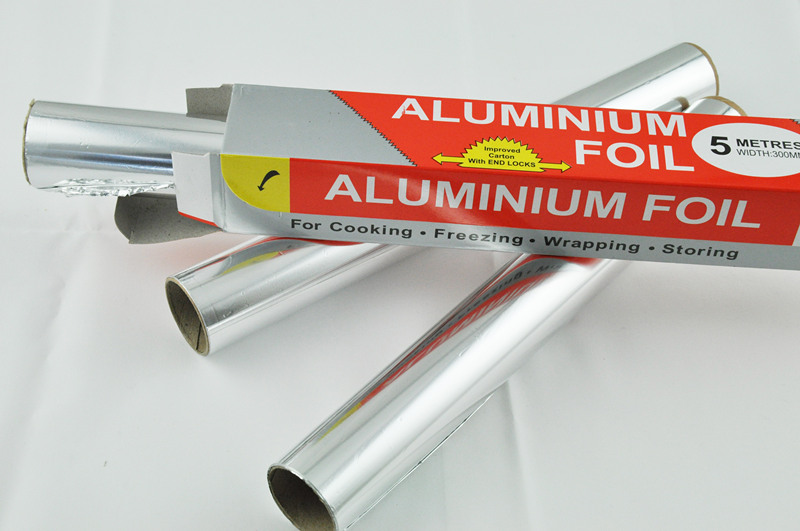
A typical home item that is frequently used in the kitchen is aluminum foil. Some people contend that cooking with aluminum foil can lead to health risks from metal leaching into the food. Others assert that using it is completely safe.
One of the most prevalent metals on Earth, aluminum naturally reacts with phosphates and sulfates to form other elements found in soil, rock, and clay. A small quantity of aluminum is also present in food, water, and the air. The majority of foods, including fruits, vegetables, meat, fish, cereals, and dairy products, naturally contain it. Additionally, some foods absorb and collect metal more rapidly than others. Examples include tea, mushrooms, spinach, and radishes. Additionally, commercially available meals with food additives may contain more aluminum than foods made at home since some aluminum products are made from processed food additives such preservatives, colorants, anti-caking agents, and thickeners.
Aluminum foil, a thin, adaptable product made from aluminum, is mostly utilized in industry for things like packaging, insulation, and transportation, but it is also used extensively at home. Aluminum foil is frequently used at home to wrap meals, such as meat, to stop moisture loss while cooking, foil tray in cooking, cover baking surfaces, and store food. Aluminum foil can also be used to wrap and safeguard more delicate goods, such vegetables, when grilling. Additionally, it can be used to scrub pans or grill grates and line grill pans to get rid of residue and tenacious stains.
The following variables greatly influence how much aluminum is really present in the food you eat.
Absorption: How quickly the food absorbs and retains the aluminum.
Amount of aluminum present in the soil where food is grown.
Whether the food has been packaged and kept in aluminum containers.
If specific additives were incorporated into the food during processing.
Additionally, aluminum is consumed through medications that contain a lot of aluminum (e.g. antacids).
In any case, since only a very small portion of the metal you consume is absorbed, the amount of aluminum in food and drugs is not a concern. The remainder is eliminated in your feces. Additionally, the ingested aluminum is subsequently eliminated in the urine in healthy people. A moderate daily consumption of aluminum is typically regarded as safe.
There are several types of food-grade aluminum foil made by Yutwin Aluminum, including 1235 aluminum foil, 1050 aluminum foil, 1060 aluminum foil, and 1100 aluminum foil as well as 8011, 8021, and 8079 aluminum foil. The primary uses include those for food packaging, pharmaceutical packaging, bottle caps, lunch boxes, milk caps, home foil, barbecue foil, beer sealing foil, aluminium foil packaging, and container foil.
In addition to stocking and processing a wide range of alloys, including foil, bar, strip, coil, sheet, and more, Yutwin is a global leader in aluminum. As a custom supplier with a global reach, we can deliver the exact size and quantity you require along with the knowledge, professional marketing counsel, and full metal production to satisfy any requirement. Contact WhatsApp+ 86 1800 166 8319 for small orders and non-standard items.
Post time: Nov-07-2022

